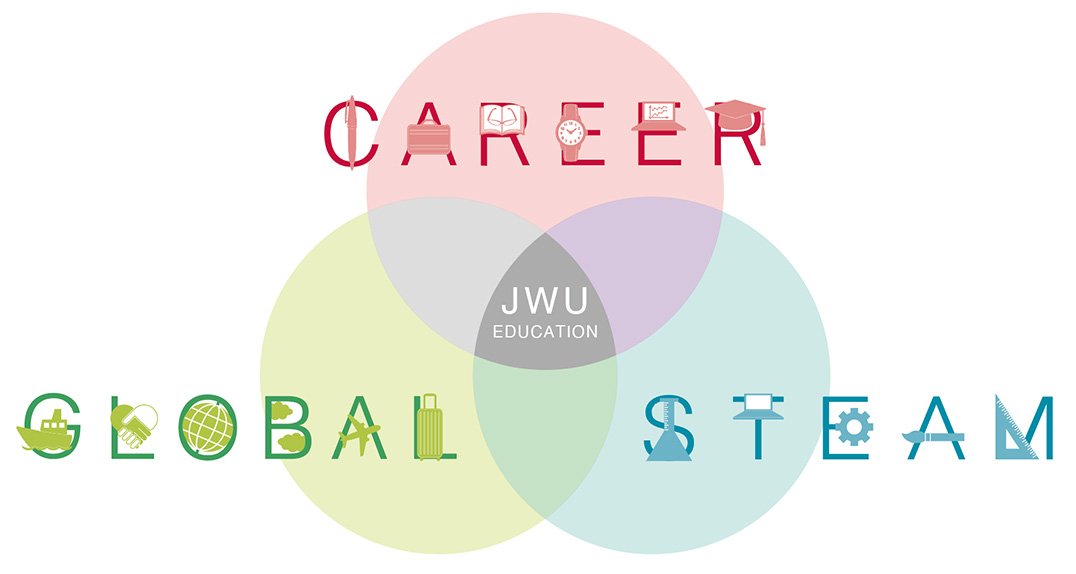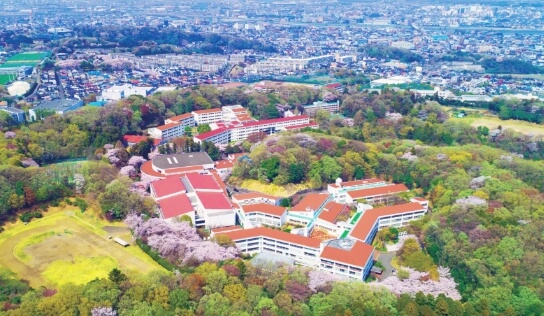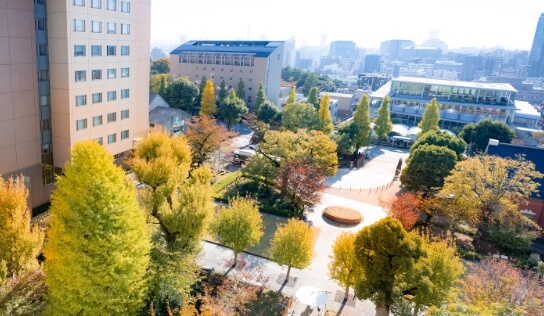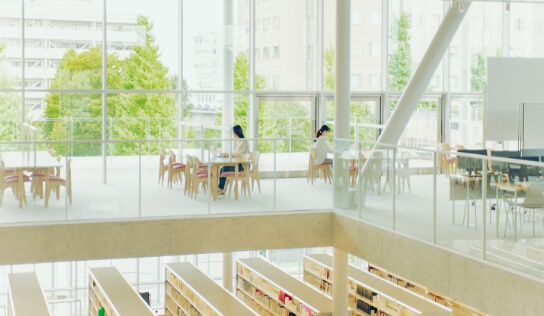
Regarding Integrated Education at Japan Women’s University
Japan Women’s University provides integrated education from kindergarten through to the University. Its origins date back to the Girls’ High School established alongside the University at its founding in 1901 (reorganized into the Junior High School Affiliated with JWU and the Senior High School Affiliated with JWU in 1947), and to the Homei Kindergarten and Homei Elementary School, both founded in 1906. Our founder, Jinzo Naruse, advocated the necessity of an educational system spanning from kindergarten to university, and realized this vision ahead of any other university.
The University’s educational philosophy is to nurture each child, pupil, and student to understand themselves, and, while maintaining a harmonious humanity and a sense of social responsibility, to be able to contribute to the world at large. To realize this philosophy, the University upholds three pillars: “Global Education,” “STEAM Education,” and “Career Education.” In the so-called “100-year life era” and in a society said to be filled with uncertainty, we aim to foster women who can maximize their potential, participate proactively in society, and create fulfilling lives for themselves.
Global Education

Four Core Competencies to be Acquired by Global Human Resources Fostered at JWU
– Linguistic and Communication Skills
– Initiative, Enthusiasm, and a Spirit of Challenge; Cooperativeness and Flexibility; Sense of Responsibility and Mission
– Understanding of Other Cultures and One’s Own Cultural Identity
– In addition: Broad Knowledge and Expertise; Ability to Identify and Solve Problems
Through its global education, Japan Women’s University provides a variety of experiential learning opportunities so that children, pupils, and students develop a global perspective, respect for diversity, and the qualities needed to become human resources capable of playing active roles on the world stage.
At Japan Women’s University, we cultivate the confidence and ability to communicate with the world and to exchange opinions smoothly through language education. With a primary focus on acquiring English proficiency, we support students in achieving effective communication in international settings. We respect each learner’s initiative grounded in the spirit of self-learning and self-motivation, and encourage an attitude of actively embracing new challenges. While fostering cooperativeness and flexibility, we also strengthen students’ sense of responsibility and mission, and their awareness of contributing to society.
Language skills alone do not necessarily mean that one has acquired global competence. Equally important is the perspective of international understanding. Deepening one’s understanding of other cultures broadens international perspectives. At the same time, understanding and respecting one’s own cultural traditions supports the establishment of a firm identity.
As part of our integrated education, JWU offers programs from kindergarten through to university that emphasize both linguistic and communication skills and international understanding, aiming to foster global human resources who will contribute to society and be active on the world stage.
STEAM education (Science, Technology, Engineering, Art, Mathematics)

In its integrated education, Japan Women’s University places emphasis on STEAM education, aiming to equip students with broad-based knowledge and skills that transcend the boundaries of the humanities and sciences. Based on the ideals of our founder, Jinzo Naruse, the University is the only private women’s university in Japan to have a Faculty of Science and has contributed to the development of women researchers in the sciences.
In today’s rapidly advancing technological landscape, society is undergoing dramatic changes and facing a variety of challenges. Addressing these requires the ability to utilize and integrate information, building upon learning in each subject area, to identify and solve problems and create social value.
In addition to STEM, JWU promotes STEAM education, which includes “A” for Arts (Liberal Arts). Within our integrated education, we place particular emphasis on information education, fostering skills in gathering, analyzing, and applying information, and developing the capacity to use information technology to solve problems. We aim to equip students with the knowledge and abilities needed in modern society and to foster leadership for the future.
Career education

At Japan Women’s University, we recognize the importance of career education to enable women in the “100-year life era” to believe in their potential, build their careers, and continue to grow. Within our integrated education, we have implemented a variety of initiatives toward this goal.
We aim to cultivate the fundamental abilities and attitudes that allow women to engage with themselves and with society throughout their lives, and to continue growing independently through the diverse stages of life. Guided by the spirit of “self-learning and self-motivation,” we emphasize problem-solving learning rather than passive learning, fostering the ability to identify and resolve issues independently.
An essential aspect of career formation is the ability and attitude to choose one’s own way of life. We support students in deepening self-understanding, setting goals for self-realization, and acquiring the skills and attitudes needed to achieve those goals.
At the University and in lifelong learning, we have also enhanced our career support programs to respond to changes in career paths and life stages. Through job placement support and career counseling, we help women discover their own careers and achieve their goals.



